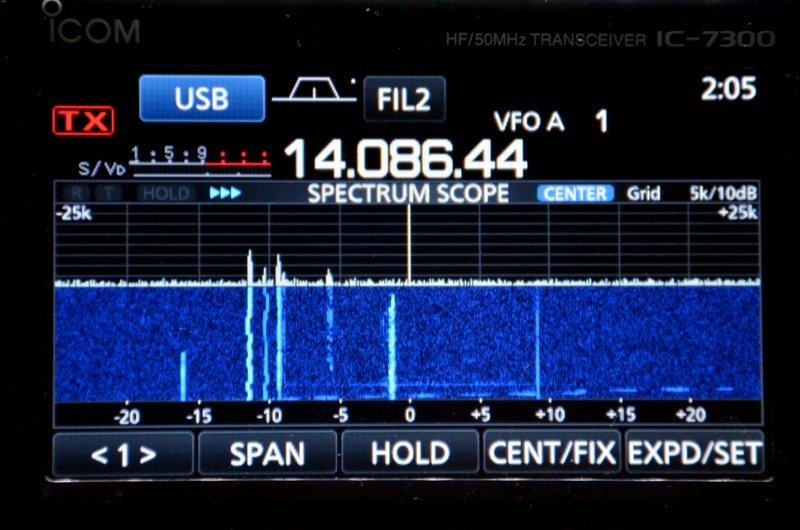Many thanks to SWLing Post contributor, Curtis, who shares the following video from NBC Left Field:
Hawaii’s recent false nuclear missile alert showed us how reliant we are on cell phones and modern technology—and how unprepared we are if they become inaccessible. But in case the unexpected happens, an unlikely group of hobbyists—ham radio operators—are standing at the ready and may save us all.


Wasn’t there a ham radio operator that lived down the street in Hardy Boys Mysteries that saved the day?
OK, I’ll play devil’s advocate.
This is a pretty wonky story. This kind of fear-mongering has been going on for decades in efforts to promote Amateur Radio membership. How will hams save Joe Blow in the event of a catastrophe?
1. Joe won’t be hearing the latest essential news from government agencies with a radio tuned to ham frequencies. He will be much better off with a working battery-operated AM or FM radio if he needs essential evacuation or survival information.
2. If local broadcasters are knocked out the local hams will be knocked out as well. The big difference: professional broadcasters participating in the EBS system will be back on-air first, and they will have the reliable information available for mass audiences.
3. Without a functional electrical grid ham stations, ham repeaters and cell phone towers won’t work. They will need back-up power.
4. Overseas broadcasts or overseas two-way radio communications will not be of much use to Joe Blow in Waipahu. The military will be ready to assist emergency agencies in this respect.
5. Emergency agencies have deep back-up capabilities for communications. Hams usually handle fairly low priority but essential emergency communications. Working with disaster relief and some remote first responders are important services but these modes of communication will not be of much value to Mr. Blow who wants to know the latest fallout forecast or where to find food and shelter.
6. Amateur Radio got a huge PR boost during the 1970’s and 80’s when it was theorized that tube-operated radio gear (including older ham gear) was more resistant to EMP damage during a nuclear attack than solid state gear. Read-up on Operation Fishbowl and Starfish Prime. Very few hams have tube-type stations in operable condition today. The myth that ham radio gear is somehow more survivable than any other electronics in a nuclear attack scenario persists to this day.
Amateur Radio is an important part of effective emergency communications but it isn’t going to save the day.
Hello Dan,
you really provoke an answer!
> 1. Joe won’t be hearing the latest essential news from government agencies with a radio tuned to ham frequencies.
WRONG: Our receivers and antennas might be optimized for the ham radio bands. But even on the normal broadcast bands our equipment often is much better than what most people have. And we have the know-how to improvise some reception system. People will come to us.
> 2. If local broadcasters are knocked out the local hams will be knocked out as well.
WRONG: Many hams have battery-powered equipment or mobile stations. Some even have solar-powered systems or other means to power their equipment for days or even longer. We demonstrate this worldwide and every year at field days. In every case we can bridge 100s or 1000s of kilometers. Simply see what happens on the Philipines after every hurricane.
> 3. Without a functional electrical grid ham stations, ham repeaters and cell phone towers won’t work. They will need back-up power.
Quite simple: Many ham radio station needs very little power and can quite easily operate off-grid. We even operate relays on towers with independent power supplies like diesel generators. These repeaters use very little power so they may remain online and offer additional, very simple to use communication channels that do not interfer with the professionals.
> 4. Overseas broadcasts or overseas two-way radio communications will not be of much use to Joe Blow in Waipahu. The military will be ready to assist emergency agencies in this respect.
WRONG: Lets simply keep to Hawaii: Ham operators can easily communicate the stations in California, Australia or some other place in the world. And there are much more ham radio operators that military bases. Distances will be much shorter.
> 5. Emergency agencies have deep back-up capabilities for communications. Hams usually handle fairly low priority but essential emergency communications. Working with disaster relief and some remote first responders are important services but these modes of communication will not be of much value to Mr. Blow who wants to know the latest fallout forecast or where to find food and shelter.
WRONG: Broadcasting does one-directionional communication. That will be essential in an emergency. But without any back channel all emergency agencies are blind and deaf. We can provide many communication points that cost the public next to nothing.
> 6. Amateur Radio got a huge PR boost during the 1970’s and 80’s when it was theorized that tube-operated radio gear (including older ham gear) was more resistant to EMP damage during a nuclear attack
WRONG: EMP protection is quite easy for ham operators: Put some older equipment in a metal box. Many of us update their station quite regularily and keep their old equipment. If the antennas arced at balus etc., we have a junk box and know-how to improvise something.
Bye,
Alexander
The one point of curiosity I have about the false alarm in Hawaii’s at the state level system is whether the alert was broadcast by weather alert radios. The radios have Emergency Alert Message codes such as CDW, CEM, and LAE for civil emergencies pre-programmed. I would have thought for such an important, albeit false, alert the interconnection between systems would have been automatic.
What a great piece by NBC, really good!
Thanks for posting!